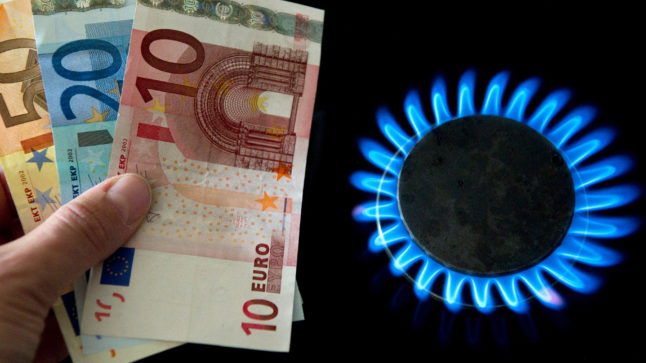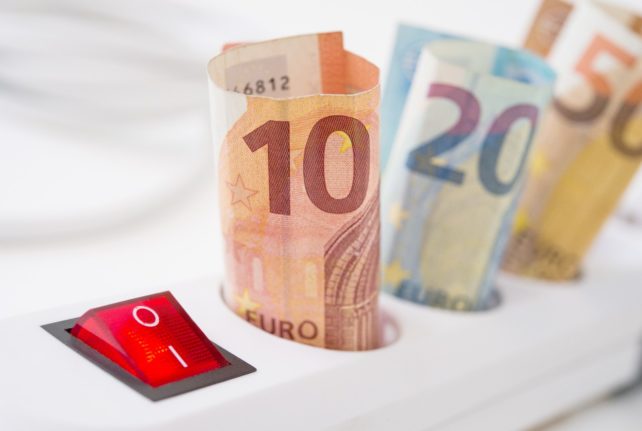According to reports in the Frankfurter Allgemeine Zeitung (FAZ), Germany’s controversial Gasumlage – or gas levy – will get axed either Tuesday or Wednesday, with a Gaspreisdeckel, or a cap on the price of gas, set to replace it.
Energy and Economics Minister Robert Habeck of the Greens insisted once again just last week that the levy would go ahead.
It would see an additional 2.4 cents per kilowatt hour passed on to consumers, in order to stabilise Germany’s energy providers, which are also struggling with higher costs after Russia cut off cheap supplies.
German and Danish investigators are now investigating whether the Nord Stream II pipeline, which Berlin axed in February in the days leading up to Russia’s invasion of Ukraine, was deliberately sabotaged Monday, as it leaks gas into the sea.
With electricity prices having doubled and gas prices nearly quintupling, several politicians – also with the government’s own traffic light coalition – have called for the levy to be scrapped.
Lars Klingbeil, co-leader for Chancellor Olaf Scholz’s Social Democrats, told public broadcaster ZDF that the gas levy was on “politically shaky ground”.
“It must be clear that we have the strength to discuss this openly and correct ourselves if necessary,” he said.
“The gas levy makes gas prices more expensive, which raises the question of whether it makes sense economically,” said Finance Minister Christian Lindner, who leads the liberal Free Democrats (FDP).
FAZ reports that negotiations between the three governing parties and relevant energy companies were nearing an end Tuesday, with the Cabinet expected to make a final decision Wednesday morning.
A gas price cap is likely to replace plans for a gas levy, which would see a limit on what consumers would pay their energy companies for gas, leaving the federal government to pick up the bill for the difference when market prices go above the designated cap.
READ ALSO: EXPLAINED: Will Germany set a gas price cap and how would it work?
With the gas price cap already having the support of many Social Democrats and Greens, Lindner’s FDP is set to agree to it provided a few conditions are met.
“As the FDP, we can foresee a gas price brake coming into force,” Christian Dürr, who leads the FDP in the Bundestag, told Deutschlandfunk. “Now, frankly, I expect the Greens to move on the issue of extending the life of nuclear power plants and restarting coal-fired power plants.”
It’s not yet clear though how the government would pay for the cap. The FDP has been resistant to suspending Germany’s constitutionally enshrined debt brake, which limits what they can borrow.
The SPD and the Greens want to suspend it to pay for a gas price cap, which could cost the government between €30 and €50 billion according to one estimate.
The debt brake can be suspended in emergency situations, such as in March 2020, when the German government put it on ice to pay for the first Covid-19 rescue package.



 Please whitelist us to continue reading.
Please whitelist us to continue reading.
Member comments